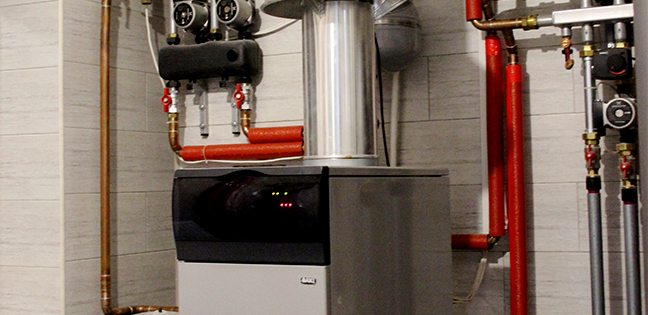Benefits
- New gas furnaces can be up to 98% efficient
- Qualified gas furnaces can be up to 15% more energy efficient than baseline models
- Reduce operating costs over the long term
- High-efficiency gas furnaces are designed to deliver comfortable heat during all types of weather
- High-efficiency gas furnaces are typically much quieter than standard furnaces because they need to work or burn less to heat
- High-efficiency gas furnaces are made with increased levels of air filtration to catch pollutants before they can pollute your air
(Sources: ENERGY STAR, Energy.gov)
Incentives & Financing
Information & Tips
Alert:
In line with the Department of Energy and Environmental Protection (DEEP) Final Determination of the 2022–2024 Plan, the Sponsors of Energize ConnecticutSM have discontinued rebates and incentives for natural gas equipment as of December 31, 2024, with a deadline to submit all 2024 residential boiler and furnace system rebate application by January 31, 2025.
Natural gas incentives remain available for qualifying customers participating in Home Energy SolutionsSM – Income Eligible, as well as for income-eligible multifamily properties with individual dwelling heating equipment participating in the Multifamily Initiative.
Tip: Consider clean heating and cooling alternatives like heat pumps, which provide efficient, year-round comfort while reducing your carbon footprint. Explore the benefits of this sustainable option.
A furnace's efficiency is measured by annual fuel utilization efficiency (AFUE), which tells you what percent of fuel is converted to useful heat for your home. The higher the AFUE, the more heat you get for your money. An AFUE of 90% means that 90% of the energy in the fuel becomes heat for the home and the other 10% escapes up the chimney and elsewhere. (Sources: ENERGY STAR, Energy.gov)
Natural gas furnaces must be vented outside to remove the byproducts of combustion. Atmospheric venting is the most common type of venting used. With it, flue gasses from the furnace are released outside through wall vents.
(Sources: ENERGY STAR, Energy.gov)
ENERGY STAR is the government-backed symbol for energy efficiency, providing credible, unbiased information that you can rely on to make well-informed decisions. The Environmental Protection Agency (EPA) ensures that each product that earns the ENERGY STAR label is independently certified to deliver efficiency, performance, and savings.

Did you know that there are federal tax credits available for high-efficiency electric heating and cooling systems?
Also Explore ➞
Heat Pumps for Heating and Cooling
Consider a heat pump for an efficient, clean option. Heat pumps provide both heating and cooling in one unit and can last longer than other heating and cooling systems.






